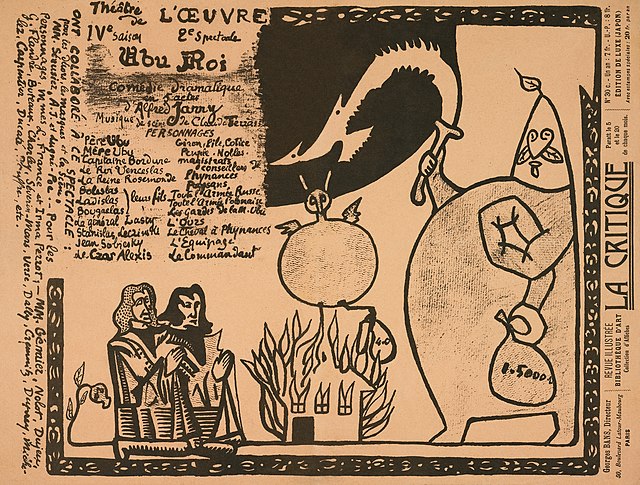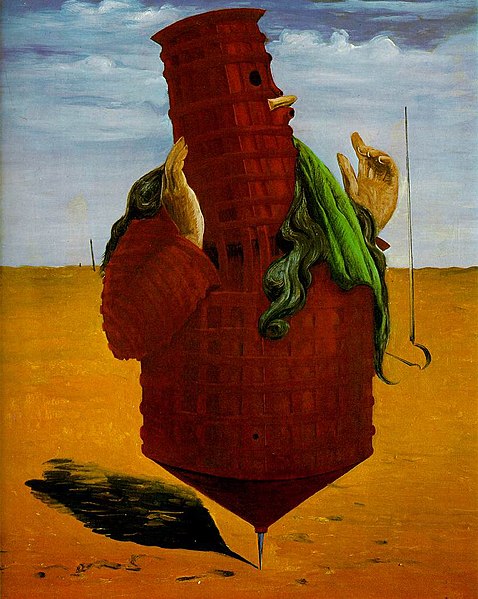Experimental theatre, inspired largely by Wagner's concept of Gesamtkunstwerk, began in Western theatre in the late 19th century with Alfred Jarry and his Ubu plays as a rejection of both the age in particular and, in general, the dominant ways of writing and producing plays. The term has shifted over time as the mainstream theatre world has adopted many forms that were once considered radical.
Robin Bittman in Corner Theatre ETC's 1981 production of Tom Eyen's The White Whore and the Bit Player, directed by Brad Mays.
Ubu Roi is a play by French writer Alfred Jarry, then 23 years old. It was first performed in Paris in 1896, by Aurélien Lugné-Poe's Théâtre de l'Œuvre at the Nouveau-Théâtre. The production's single public performance baffled and offended audiences with its unruliness and obscenity. Considered to be a wild, bizarre and comic play, significant for the way it overturns cultural rules, norms and conventions, it is seen by 20th- and 21st-century scholars to have opened the door for what became known as modernism in the 20th century, and as a precursor to Dadaism, Surrealism and the Theatre of the Absurd.
Programme from the première
Alfred Jarry, Deux aspects de la marionnette originale d'Ubu Roi, premiered at the Théâtre de l'Œuvre on 10 December 1896
2012 production of Ubu Roi, produced by the National School of Drama (New Delhi) and directed by Deepan Sivaraman
Max Ernst, Ubu Imperator, 1923. (Musée National d'Art Moderne, Paris)





